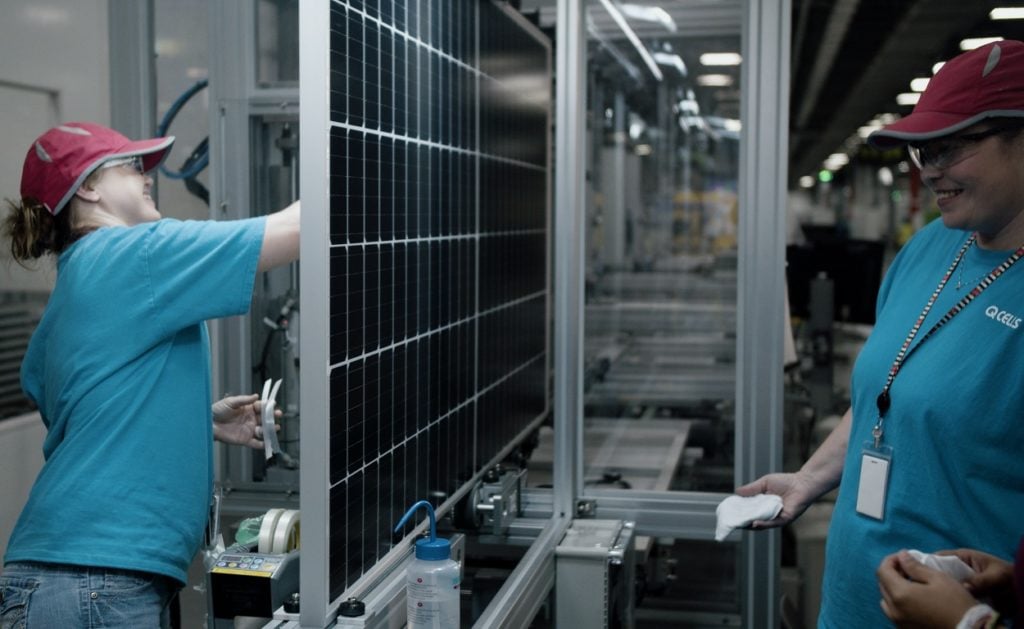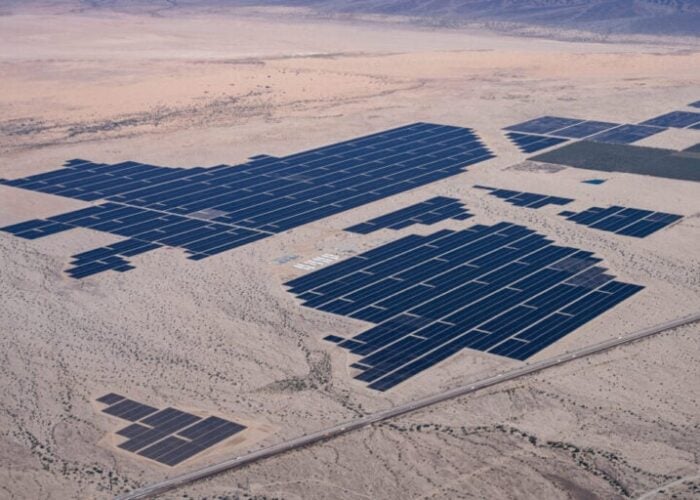
The US Department of Commerce (DOC) has imposed preliminary antidumping (AD) rates on solar manufacturers in Thailand, Cambodia, Malaysia and Vietnam as part of its ongoing antidumping and countervailing duty (AD/CVD) investigation.
The rates vary for each country and company investigated.
Unlock unlimited access for 12 whole months of distinctive global analysis
Photovoltaics International is now included.
- Regular insight and analysis of the industry’s biggest developments
- In-depth interviews with the industry’s leading figures
- Unlimited digital access to the PV Tech Power journal catalogue
- Unlimited digital access to the Photovoltaics International journal catalogue
- Access to more than 1,000 technical papers
- Discounts on Solar Media’s portfolio of events, in-person and virtual
The DOC issued a list of companies on Friday (29th November) that it says are exporting solar cells to the US at prices below production costs, a practice known as “price dumping”. Critics contend that price dumping causes active harm to US solar manufacturers, though the DOC conducts specific investigations into whether imports cause “material injury” to the domestic US industry.
These preliminary AD findings are separate from the preliminary CVD findings issued in October, though the two will be applied cumulatively on offending imports. CVD rates are designed to counteract export subsidies applied by foreign governments for shipments to the US, rather than low selling prices of the products themselves.
Final determinations of the AD rates are expected in April 2025.
Antidumping rates
The preliminary AD rates differed significantly for each country. Despite shipping the least volume of solar cells to the US of the four countries, all investigated parties in Cambodia received a weighted average dumping margin of 125.37%.
This is because two Cambodian companies – Hounen Solar and Solar Long PV Tech – stopped complying with the DOC’s investigation last month. Via a US attorney, the two firms informed the DOC that they lacked the resources to continue complying with the AD/CVD investigation. Because they were mandatory respondents to the investigation (larger companies which stand as proxies for a country’s whole sector), Cambodian exports were all judged to be in violation of the investigation, based on the DOC’s principle of “facts available with adverse inferences”.
Companies in the other three countries received rates between 21.31% and 271.38%. The entire list of companies and countries can be found on the DOC’s website.
In a LinkedIn post, Christian Roselund, senior policy analyst at US consultancy Clean Energy Associates said: “Rates for Cambodia are exactly what we expected after the withdrawal of the mandatory respondents, rates for Vietnam were always unpredictable, rates for Thailand are much higher than we expected, and rates for Malaysia within 1% of our forecast.”
Potential impact
The AD/CVD case was brought in April by the American Alliance for Solar Manufacturing Trade Committee – a group comprising US-based solar manufacturers Hanwha Qcells, Mission Solar, REC Silicon, Meyer Burger and Cadmium Telluride (CdTe) thin-film module manufacturer First Solar.
PV Tech looked into the potential winners and losers of the case following the preliminary CVD findings. Following that determination, data from solar software firm Anza Renewables showed that US solar module prices had risen since the AD/CVD petition was filed in April and market research firm Mercom Capital cited the proceedings as one of the primary reasons for a US$7 billion drop in corporate financing to the solar sector in Q1-3 2024.
The investigation’s impact on US solar manufacturing is also unclear. When they brought the case, the petitioners claimed they were defending the US manufacturing industry against “potentially illegal trade practices.”
However, the US solar manufacturing sector is heavily dependent on imported solar cells, which will become more expensive if tariffs are ultimately introduced. The Inflation Reduction Act (IRA) has so far failed to stimulate the same growth in cell manufacturing capacity as it has in modules, as cells are a more costly, complex and time-consuming product than module assembly.
CEA forecast that AD/CVD could cause a cell supply “bottleneck” to the US as most domestic module manufacturers do not have a captive cell supply.
The members of the American Alliance for Solar Manufacturing Trade Committee have captive cell production capacity either in the US or overseas. Hanwha Qcells (which is a respondent to the case via its Malaysia business) is developing a vertically integrated manufacturing hub in the US state of Georgia and has capacity in South Korea. Meyer Burger has cell production capacity in Germany, and First Solar produces CdTe modules in the US, Southeast Asia and India.







